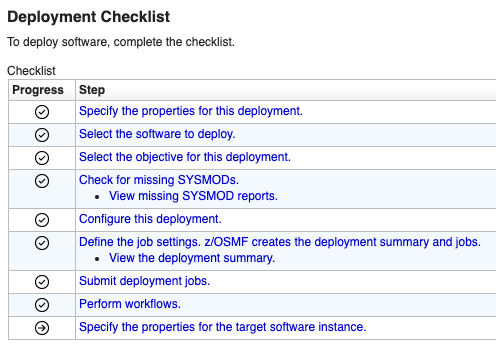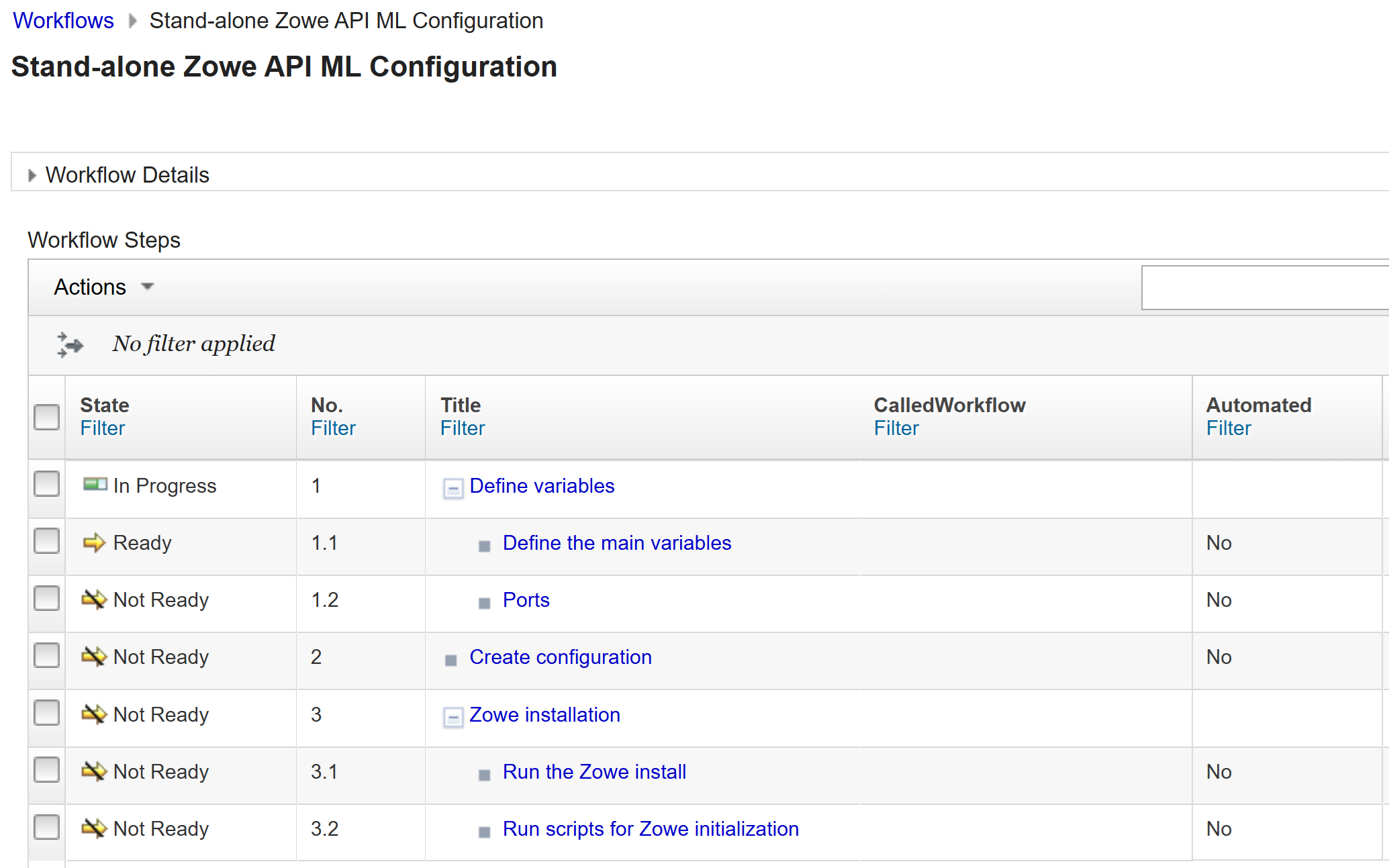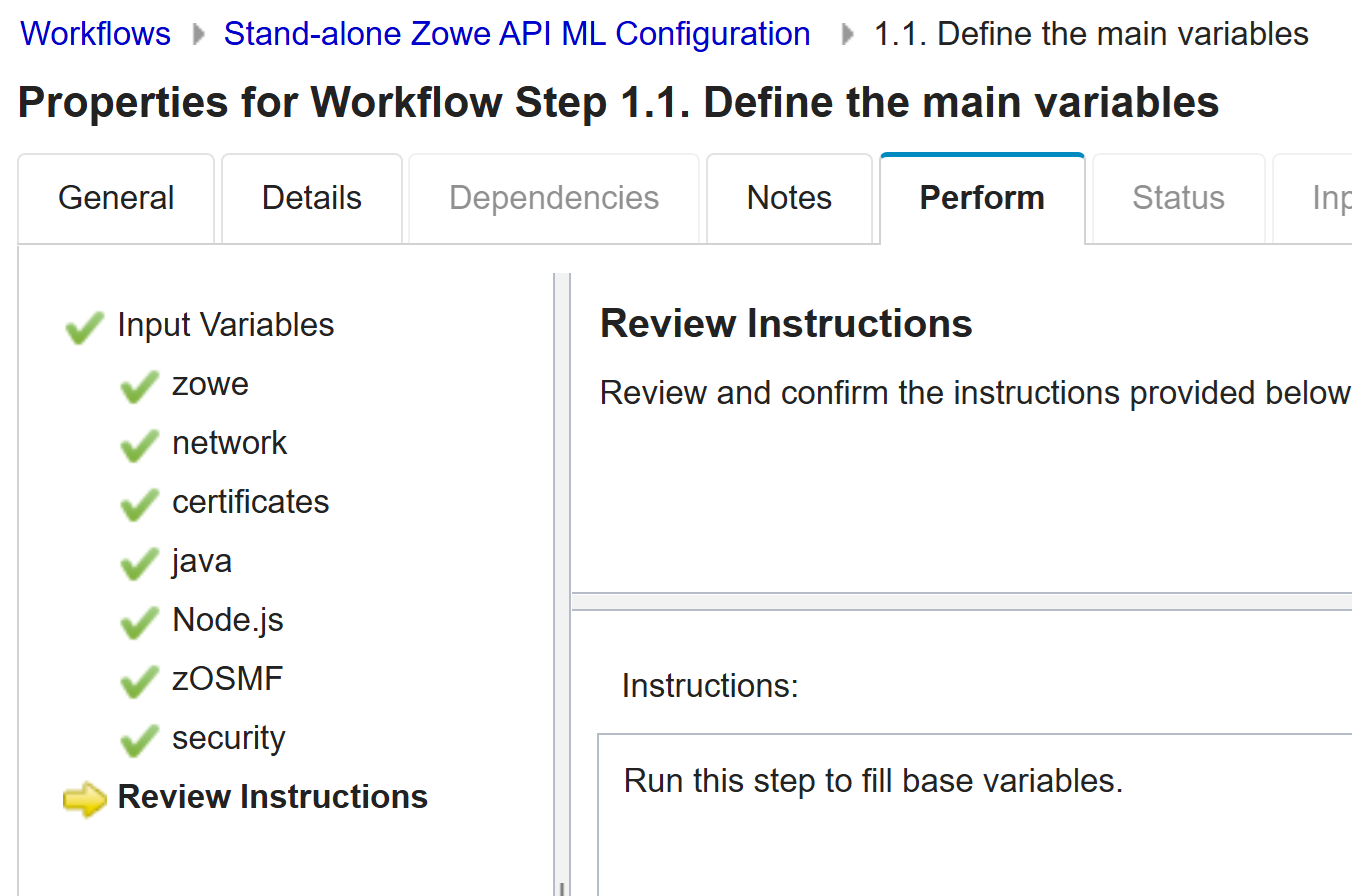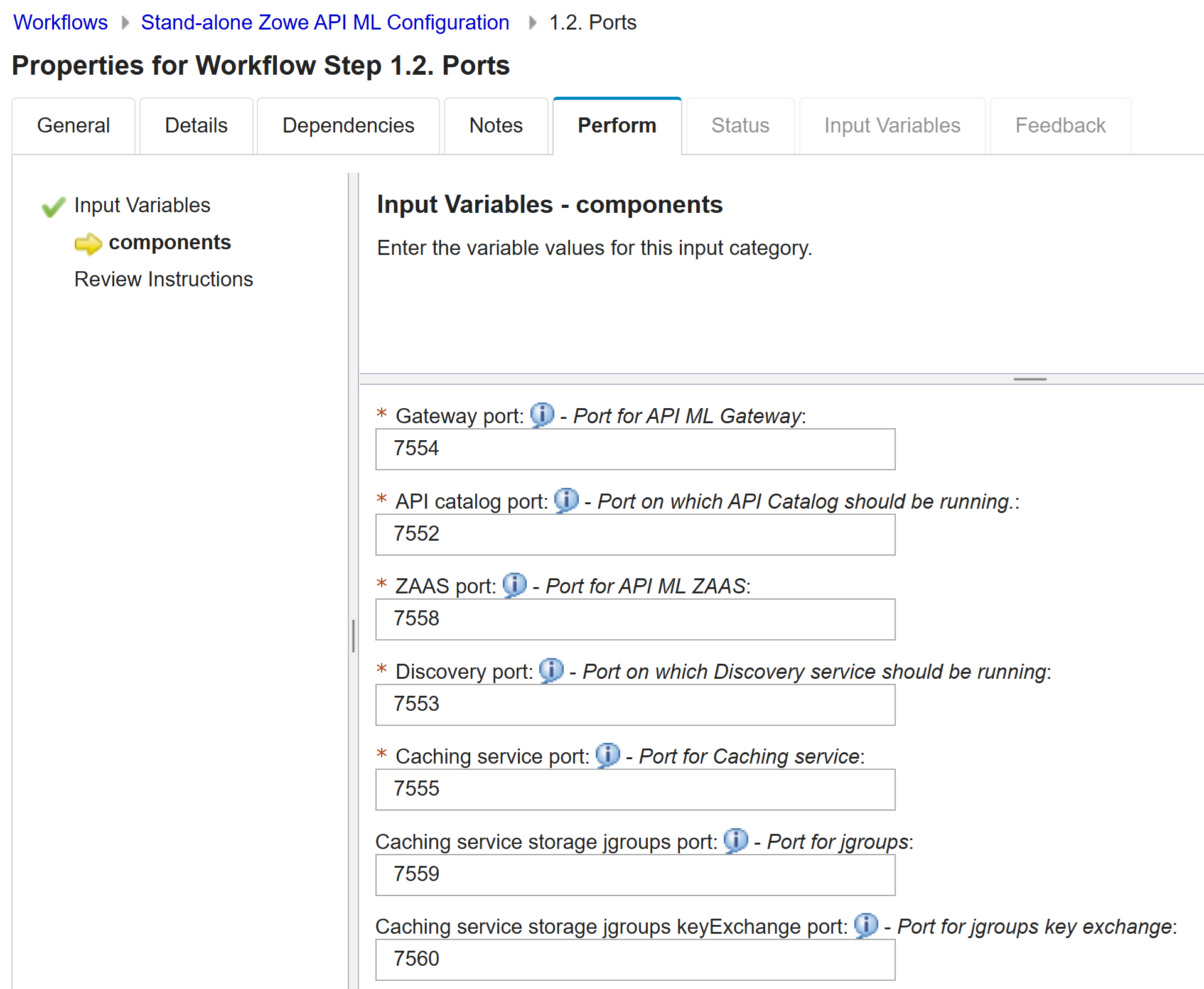Configuring API ML with z/OSMF Workflows
Configuring API ML with z/OSMF Workflows
After you install Zowe, you can register and execute the z/OSMF workflows in the web interface to perform a range of
API ML/Zowe configuration tasks. The Stand-alone Zowe API ML Configuration workflow simplifies configuration of Zowe API Mediation Layer and does not require the level of
expertise that is needed to perform manual API ML/Zowe configuration. The Stand-alone Zowe API ML Configuration workflow also runs the zwe install and zwe init command to initialize the Zowe z/OS runtime.
Prerequisites
Ensure that you meet the following requirements before you start your Zowe configuration:
- Install and configure z/OSMF
- Install Zowe with an SMP/E build, Portable Software Instance, or a Convenience Build.
Overview of Stand-alone Zowe API ML Configuration workflow
You can execute the Stand-alone Zowe API ML Configuration workflow either from a PSWI during deployment or later from a created software instance in z/OSMF. Alternatively, you can execute the configuration workflow in z/OSMF during the workflow registration process.
The configuration workflow described in this article is executed directly from a deployment of the Zowe PSWI.
Executing Stand-alone Zowe API ML Configuration workflow from PSWI
After Zowe installation, follow this procedure to perform Zowe API ML Configuration workflow from PSWI.
For more information about installing Zowe server-side components with z/OSMF, see Installing Product Software Using z/OSMF Deployments.
-
In the Software Management panel, click Actions and Add from z/OSMF System.
-
Specify your system name and file location path (UNIX file).
-
Click Retrieve.
-
Review the Deployment Jobs and click Deployment Checklist.
-
Follow each step outlined in the Deployment Checklist.

-
After you complete all of the preceding steps outlined in the Deployment checklist, click Perform workflows to leverage configuration of API ML with z/OSMF workflows.
Each workflow appears in the panel.
The Perform Workflows step enables you to run either all attached workflows or just the post-deployment workflow for mounting, which is required.
Before you start your configuration, ensure that you first perform the Zowe Mount workflow. For more information, see Configure - UNIX file system mount points in the IBM documentation.
After you successfully perform the Zowe Mount workflow, you can start the Stand-alone Zowe API ML Configuration workflow.
Select the Stand-alone Zowe API ML Configuration workflow from the list of Workflow Definition Files.
The following screen displays:

Expand the Workflow Details panel to see the workflow details and the state of each step. This workflow is in three parts:
Define variables
Create configuration
Perform Zowe installation
Sequence to execute each workflow step
Before you start performing workflow steps, first review the following sequence within a workflow step:
- Click the title of the step or sub-step.
- Select the Perform tab.
- Review the step contents and update the variables that are marked by a red asterisk based on your mainframe environment.
- Select Next.
- Repeat the previous steps in this sequent to complete all items until the Finish option is available.
-
You can click Save, to save your values and Finish to populate these values in subsequent steps.
-
Basic validation is supported in many of the fields including the proper path structure, dataset name conventions, or numeric size. The workflow, however, does not check, for example, if a target dataset exists, or if a directory has sufficient space.
- When you complete this list of Input variables, click Next to view the components. Tick each component in this list that you want to enable.
- Click Finish to populate the values. This action customizes your workflow according to the components.
You are then presented with enabled sub-steps according to the Zowe components you specified. - Click each sub-step and customize component-specific variables. Click Next until you complete your customization of the variables.
- Click Finish to apply the values.
Define variables
The first workflow step in API ML configuration is to define variables.
-
Expand Define variables.
-
Under Input Variables, click Define the main variables.
-
Click the Perform tab. The input variables are displayed by category.
-
Customize workflow variables in the fields provided.
Example:
After you complete the definition of the main variables for your configuration, define all ports for automatically enabled API ML services.

After all sub-steps are completed, the step Define variables is marked as Complete.
Single-service deployment mode is activated by default in the zowe.yaml created by this workflow. See Enabling Single-Service deployment of API Mediation Layer for the benefits of this deployment mode.
Create configuration
The second workflow step is to create a configuration zowe.yaml file with the variable setup that was defined in the Define variables step.
- Review your configuration.
- If necessary, customize the JCL according you your specifications and click Finish.
The zowe.yaml file is ready, and the step is marked as Complete.
The Create configuration step is mandatory. A valid zowe.yaml is required to execute the Zowe installation step.
Perform Zowe Installation
This step consumes the zowe.yaml configuration file and contains two sub-steps:
- Run Zowe install to run the
zwe installcommand. - Run Zowe init to run
zwe init mvsandzwe init stccommands.
If you did not set up security prior to this installation, you can submit the ZWESECUR JCL. For details, see Configuring security.
For more information about zwe install and zwe init commands, see the following articles:
Schema information and next steps
The Stand-alone Zowe API ML Configuration workflow strictly follows the Zowe v3 install and configuration schema. This workflow generates the zowe.yaml file and runs the Zowe zwe CLI tool.
After completing the workflow execution, you can return to the Deployment Checklist for the Zowe PSWI.
After you complete the steps in the checklist you are ready to start your Zowe instance with optimized setup for Zowe API Mediation Layer.